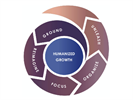David Blecken 08 Nov 2019 // 7:44AM GMT

However one might try to dress it up, work is work, and in the world of PR, there is often a lot of it. The culture of a workplace is often what makes the difference between that work being enjoyable and even inspiring, and a chore.
Culture is not easy to define, because it’s a combination of many factors that develop over time. Half of respondents to this year’s Best Agencies to Work For research in Asia-Pacific felt strongly that their company is a fun place to work, and 53% said they like their colleagues. At work, fun must also have direction though, and the percentage who fully understand their company’s vision and strategy was lower at 46%. Just 44% say with full confidence that they have a mentor, while only half feel encouraged to use their initiative. Fewer than half too seem to believe they have an opportunity to grow and develop new skills.
The findings are based on the employee survey conducted by the Holmes Report, which polled almost 1,000 agency executives across more than 20 firms in the region. The first instalment of our Asia-Pacific analysis examined concerns about a lack of money, training and later-life career options.
The broader communications industry can sometimes fall into the trap of presenting ‘culture’ as a series of superficial perks and gimmicks that offer momentary distraction from work. But the most forward-thinking PR agencies understand culture to be a combination of clarity of purpose and humanity.
Firstly, it means offering something to the market that people are proud to deliver. It also means fostering an environment that people are proud to be part of, find inspiring, and can see their future in. And it means trusting people to work to the best of their ability without being chained to their desks.
That much might seem obvious, but it’s only relatively recently that the industry has begun thinking in those terms. Today, just about every agency canvassed claims to offer some form of flexible working, although just 45% of respondents say they truly have the freedom to decide how they perform their work. Fewer still are satisfied with their time-off benefits (42%) and ability to take holiday as they would like (44%).
In India, On Purpose has one of the clearest goals of any agency: to drive social change. It is also among the most flexible. It asks that people be present between 11am and 5pm. The other three hours of their working day are at their convenience. One day a week is also a work-from-home day, extending to two full weeks at the end and start of the year.
In Australia, Sling & Stone also has a clearly defined mission: to help what it sees as the most important businesses of the future tell their stories. It makes a point of periodically questioning what it stands for, and gives staff a minimum of six days per year for learning and development. This is indicative of the career planning that is absent in a lot of companies with fast-paced environments. The agency claims to structure roles around individuals’ work and life aims, and that everyone’s objectives and key results are different. Last year it says it created eight roles based on personal interests and entrepreneurialism.
Other agencies put diversity at the centre of their culture. Burson Cohn & Wolfe, which has a dedicated chief culture officer whose purpose is to help get the best out of the two merged entities, also has more female leaders than average: 50% of its executive leadership team are women.
On a much smaller scale, Singapore-based Mutant Communications says diversity and inclusion are “key metrics” for the company. There too female leaders are well represented (60%) and it makes a point of welcoming LGBTQ+ staff. It has turned away work from clients that do not align with its “inclusive attitude”. It also has an innovative, generous maternity policy which offers new mothers four fully-paid, staggered months in addition to the statutory 12 to 16 weeks.
Making a point of recognising good work also makes staff feel appreciated. Mutant’s managing director Lina Marican says regularly rewarding outstanding individuals with spot bonuses “has helped create a ripple effect where people stick around”.
Who is ultimately responsible for culture at an agency? Marican and Girish Balachandran, founder of On Purpose, agree that it should be driven by the person at the top, but Marican says it’s essential for line managers to cultivate it. “This is crucial because once you’ve reached a certain size, it won’t just be a handful of people championing the culture,” she says.
Fostering culture is partly setting a framework and partly letting it develop by hiring the right people. “Strong corporate culture grows organically in a prescribed way, much like a family unit,” Marican says.
For Balachandran, “it’s been a constant exercise in setting frameworks and letting people make choices within it, often tightening or loosening them based on how people respond and if necessary, dismantling them,” he says.
A further challenge would seem to be maintaining a distinctive culture while being open to a wide range of people (relatively few respondents to the survey, 24%, strongly believe that their workplaces demand a certain type of person). Marican doesn’t think diversity should undermine distinctive culture; rather, emphasis on diversity should attract people who share those values.
“The issue can often be what ‘culture fit’ means to a company, which can be vague and leave leaders open to assessing potential talent on flawed metrics based on unconscious bias or unintentional discrimination,” she notes. “We prefer to view it as ‘cultural contribution’, whereby we look for people who can bring something new to the table, whether it’s skills or personality type, or simply different ways of looking at our processes and the way we do things.”
At On Purpose, culture has evolved with the people the agency has needed to hire. Balachandran says the aim should not be to retain culture; instead, it should develop based on staff aspirations, working style and ambitions. “What must remain steadfast is the mission, why we set up in the first place,” he says. At On Purpose, 30% of the team does not have a PR background. While this makes the agency less efficient than it might be, Balachandran believes it makes it possible to offer “a much richer view of the world” and attract others from “outside the PR bubble”.
Staff turnover is bound to lead to cultural changes, even if they might be difficult to perceive at first. But Marican thinks having a strong culture leads people to stay. She claims the agency has a retention rate of almost 100%.
“Culture is key and we’ve seen first-hand how it not only builds a happy team that sticks with us, saving a ton in recruitment fees, but also a team that’s motivated to do quality work,” she says, adding that the benefits make paying extra attention to culture “a no-brainer”.
Two specific factors that instil pride and foster loyalty are not always easy for agencies, especially big networks, to achieve, however. One is taking a strong stand on something, whether it’s championing a social cause, turning away business for ideological reasons or defying an unreasonable client. “People want to know their employer has a spine,” says Balachandran.
The other is avoiding office politics. Well under half of respondents said they were “rare” in their company, which clearly suggests a drag on energy as well as time. Furthermore, just 40% fully believe their firms have stamped out unnecessary bureaucracy. “There’s nothing more distasteful than internal conflict,” Balachandran observes.


































.jpg)

















